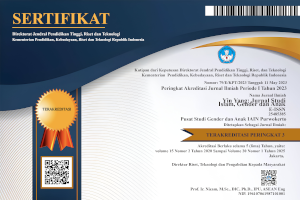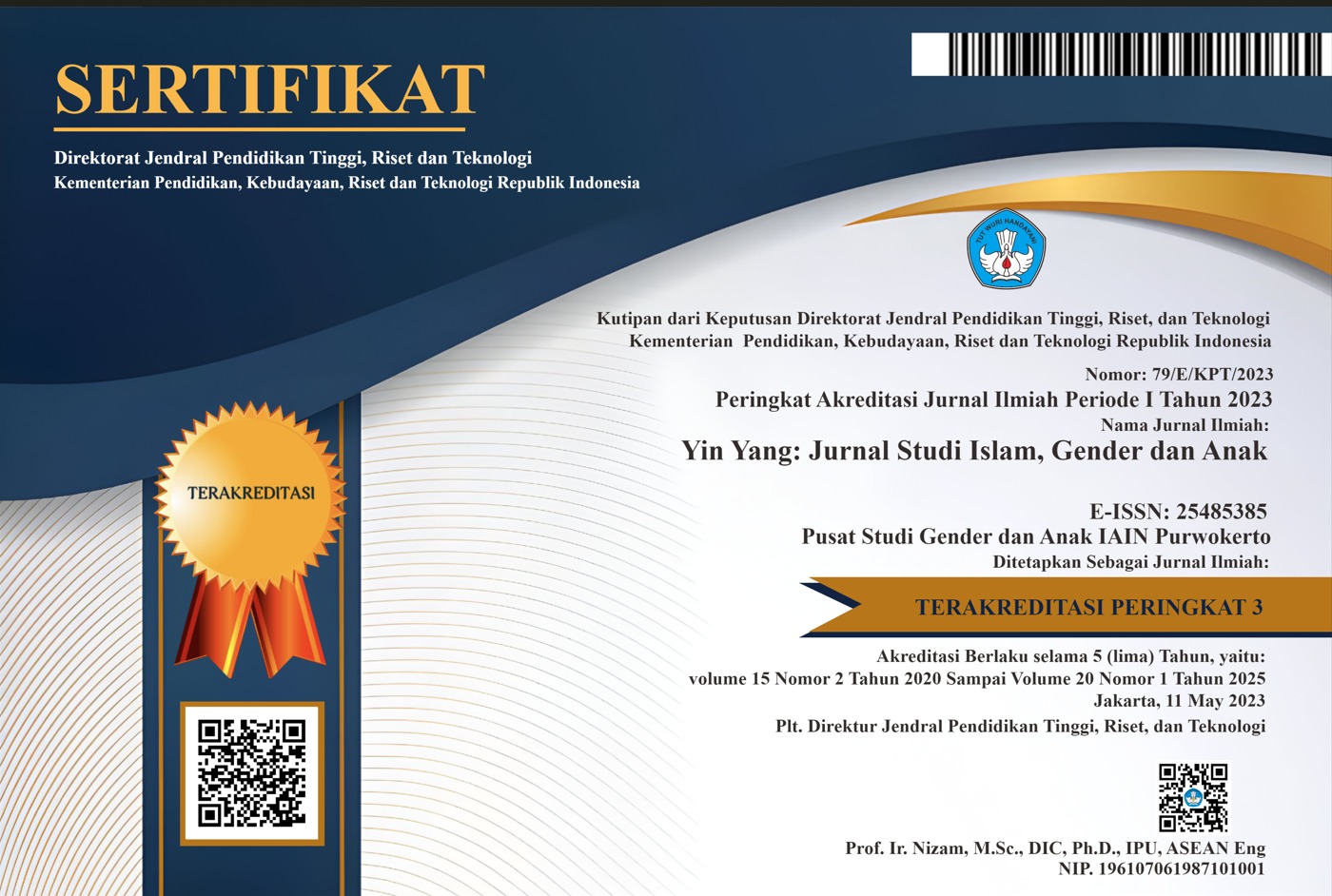PAUD BERWAWASAN INTEGRATIF (Difusi Inovasi Ilmu & Agama ke dalam Proses Pembelajaran Pendidikan Anak Usia Dini)
Keywords:
diffusion of innovation, early childhood education (PAUD), Islamic valuesAbstract
The effort to implement Islamic values in the learning process of early childhood education has resulted in various practices. Many foundations, mass organizations, religious, and even political organizations participate in establishing education institutions for early childhood education (PAUD). For instance, Muhammadiyah establishes ABA Nursery School, NU establishes Raudhatul ‘Athfal (RA), private foundations establish their own nursery schools (such as Tunas Melati Nursary School, etc.), as well as what Justice and Welfare Party (PKS) establishes, i.e. Islam-integrated educations institutions of nursery schools. All of the varieties are done to insert Islamic values to the learning process, which is considered to be better. However, the practice of inserting Islamic values in early childhood education is often trapped in two basic practices, i.e. the use of religious symbols and cognitive aspects of religion. To anticipate that condition, this article is trying to formulate a diffusion of innovation in implementing Islamic values in the learning process in early childhood education integratedly and interconnectedly. This means that teaching religion includes not only religious knowledge but also science in the perspective of religion. To formulate the diffusion of innovation, this article applied Michael Fullan’s theory of change as found in his book entitled The Meaning of Education Change and Roger’s adoption pattern. Based on the theories, this article suggests a new formula of developing early childhood education in the future, especially for nursery schools.Downloads
Download data is not yet available.
References
Abdullah, Amin. (2003). Rekonstrusi Metodologi Ilmu-Ilmu Keislaman, Yogyakarta: Sukapress
——, dkk, (2000). Mencari Islam, Studi Islam dengan Berbagai Pendekatan. Yogyakarta: Tiara Wacana
Freire, Paulo.(1992). Pendidikan Kaum Tertindas. Jakarta: LP3ES
Tafsir, Ahmad. (2003). Filsafat Pendidikan Islami; Integrasi Jasmani, Ruhani dan Akal Memanusiakan manusia. Bandung: PT Remaja Rosdakarya
Hurlock, Elizabeth B. (1978). Perkembangan Anak, Jilid 1, Terj. Meitasari Tjandrsa dan Muslichah. Jakarta: Erlangga
Kostelnik, Marjorie J. (2000). Developmentally Appropriate Curriculum, Best
Practisies in Early Chilhood Education.London: Merrill Imprint of Prentice Hall
Lwin, May, dkk. (2008). How to Multiply Your Child’s Intellegence, CaraMengembangkan Berbagai Komponen Kecerdasan. Yogyakarta: Indeks
Marrison, George S. (2002). Education and Development of Infants, Toddlers, and Preschoolers. London: Preschoolers, Florifa International University
Silberman, Mell L. (2002). Active Learning, Trj. Sutrisno. Yogyakarta: Yapendis
Suyadi. (2009). Permainan Edukatif yang Mencerdaskan. Yogyakarta: Power Book, Ihdina
——, dkk, (2000). Mencari Islam, Studi Islam dengan Berbagai Pendekatan. Yogyakarta: Tiara Wacana
Freire, Paulo.(1992). Pendidikan Kaum Tertindas. Jakarta: LP3ES
Tafsir, Ahmad. (2003). Filsafat Pendidikan Islami; Integrasi Jasmani, Ruhani dan Akal Memanusiakan manusia. Bandung: PT Remaja Rosdakarya
Hurlock, Elizabeth B. (1978). Perkembangan Anak, Jilid 1, Terj. Meitasari Tjandrsa dan Muslichah. Jakarta: Erlangga
Kostelnik, Marjorie J. (2000). Developmentally Appropriate Curriculum, Best
Practisies in Early Chilhood Education.London: Merrill Imprint of Prentice Hall
Lwin, May, dkk. (2008). How to Multiply Your Child’s Intellegence, CaraMengembangkan Berbagai Komponen Kecerdasan. Yogyakarta: Indeks
Marrison, George S. (2002). Education and Development of Infants, Toddlers, and Preschoolers. London: Preschoolers, Florifa International University
Silberman, Mell L. (2002). Active Learning, Trj. Sutrisno. Yogyakarta: Yapendis
Suyadi. (2009). Permainan Edukatif yang Mencerdaskan. Yogyakarta: Power Book, Ihdina
Published
2017-02-02
How to Cite
Suyadi, S. (2017). PAUD BERWAWASAN INTEGRATIF (Difusi Inovasi Ilmu & Agama ke dalam Proses Pembelajaran Pendidikan Anak Usia Dini). Yinyang: Jurnal Studi Islam Gender Dan Anak, 11(2). Retrieved from https://ejournal.uinsaizu.ac.id/index.php/yinyang/article/view/859
Issue
Section
Articles
License
Authors who publish with this journal agree to the following terms: Authors retain copyright and grant the journal right of first publication with the work simultaneously licensed under a Creative Commons Attribution-ShareAlike 4.0 International License that allows others to share the work with an acknowledgment of the work's authorship and initial publication in this journal.

















